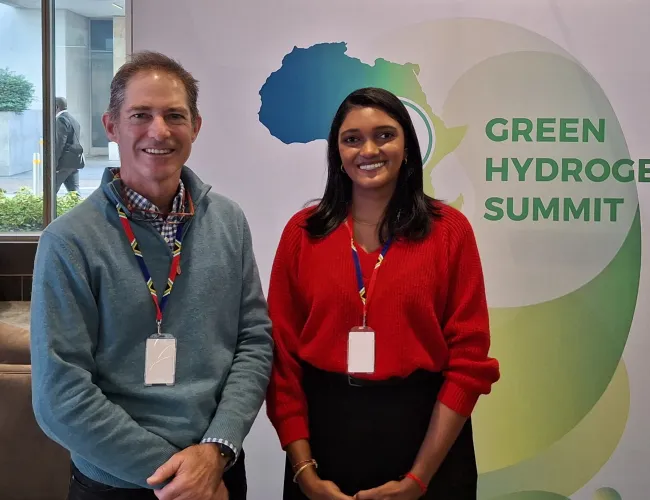
#TeamCSIR advances decarbonisation ambitions at African Green Hydrogen Summit 2025
Top-level discussions about future opportunities of clean energy took centre stage at the African Green Hydrogen Summit as global leaders, investors, energy…
View More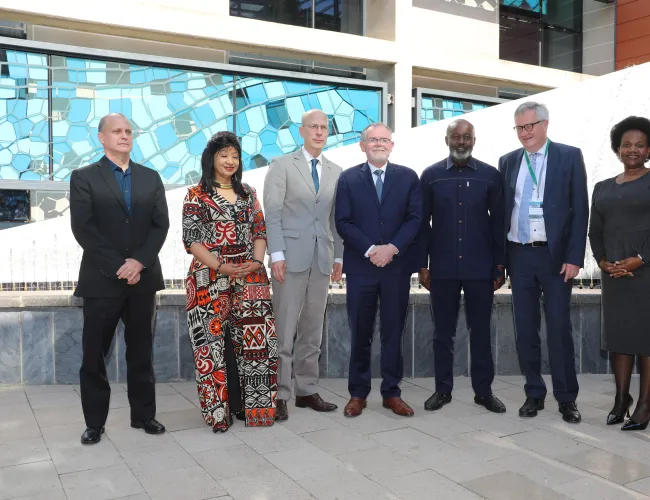
CSIR joins Dr Dion George to launch South Africa’s national coastal adaptation plan
South Africa unveiled its inaugural national Coastal Climate Change Adaptation Response Plan (CARP) [pdf] at a ministerial launch led by the Minister of the…
View More
Kathryn Arnold appointed to the Committee for Spatial Information
Kathryn Arnold, a senior researcher in the Council for Scientific and Industrial Research (CSIR) Urban and Regional Dynamics research group, has been appointed…
View More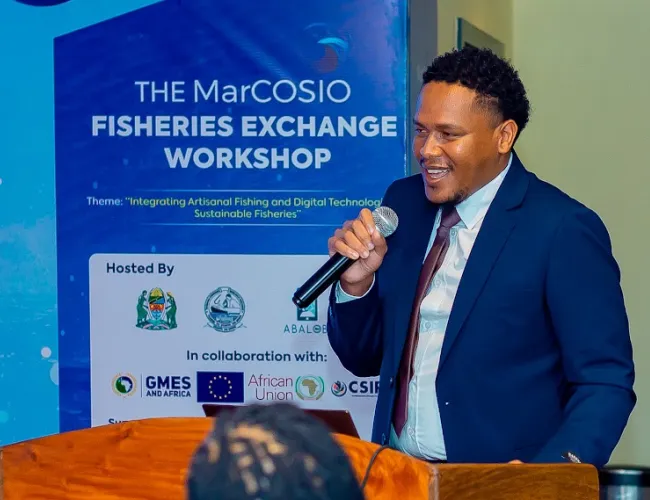
CSIR contributes to promoting sustainable harvesting at the MarCOSIO Fisheries workshop
The Marine and Coastal Observations for Southern Africa and the Indian Ocean (MarCOSIO) programme, part of the Global Monitoring for Environment and Security (…
View More
CSIR young researchers lead tech innovations for SA’s food security, agriculture, and health challenges
On Thursday , 19 June, the Council for Scientific and Industrial Research (CSIR) will host a hybrid media briefing to showcase the remarkable efforts of young…
View More
CSIR’s Prof. Suzan Oelofse delivers World Environment Day 2025 guest lecture at UNISA
As part of the World Environment Day celebrations held on 5 June 2025, Prof. Suzan Oelofse, a principal researcher at the Council for Scientific and Industrial…
View More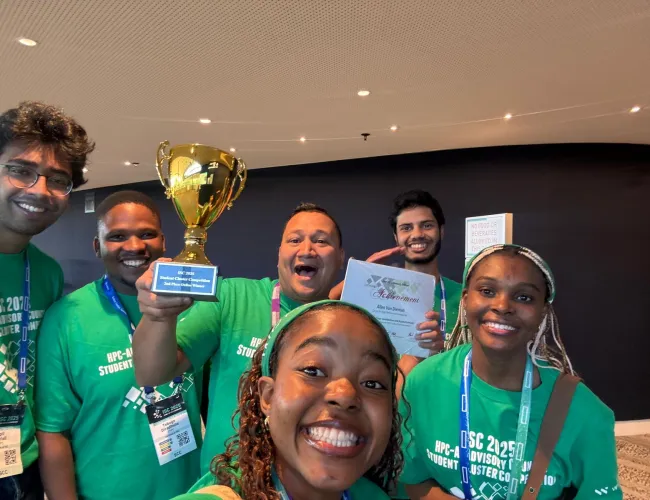
CHPC’s Student Cluster Competition team secures 2nd place at international supercomputing contest
The Centre for High Performance Computing (CHPC) team that participated in the international Student Cluster Competition at the ISC25 Conference held from 10-…
View More
A pact to empower Eastern Cape communities through renewable energy initiatives
The CSIR and the Cookhouse Wind Farm Community Trust have entered into a collaborative agreement to drive socioeconomic development in the Eastern Cape towns…
View More
CSIR contributes to Pan-African dialogue on research priorities and digital infrastructure sustainability
On 24 April 2025, representatives from the Council for Scientific and Industrial Research (CSIR) participated in the inaugural workshop on Pan-African digital…
View More
AI Is harnessed in TTM Digital Twin to avoid collisions and improve safety in mines
In a move to socialise the transformation of mine safety and innovation efforts in South Africa, Sibongile Ntsoelengoe, Executive Manager: Mining at the…
View More
Discussion exploring intersection between journalism, AI and press freedom
The National Press Club in partnership with the Council for Scientific and Industrial Research (CSIR) will host a roundtable discussion under the theme “…
View More
Bringing 4IR skills into the educational ecosystem publicised at Parliamentary webinar series
Maximising the impact of the fourth industrial revolution (4IR) in learning environments took centre stage during the second instalment of a webinar series…
View More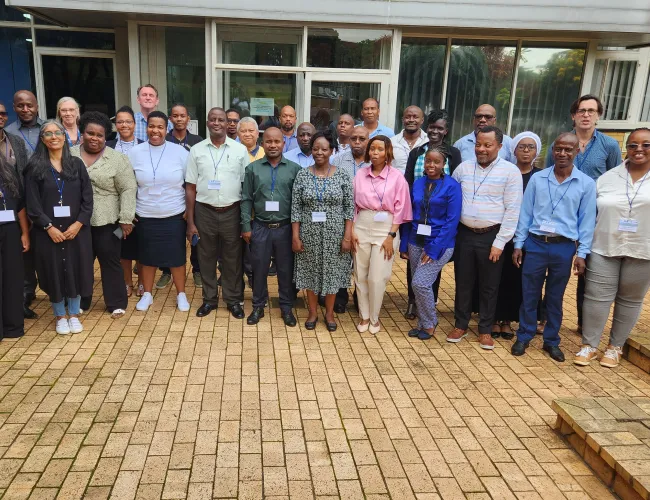
From frameworks to action: CSIR develops capacity to tackle marine pollution in the West Indian Ocean
Efforts to combat marine pollution in the Western Indian Ocean (WIO) region took a significant step forward during a weeklong training and capacity development…
View More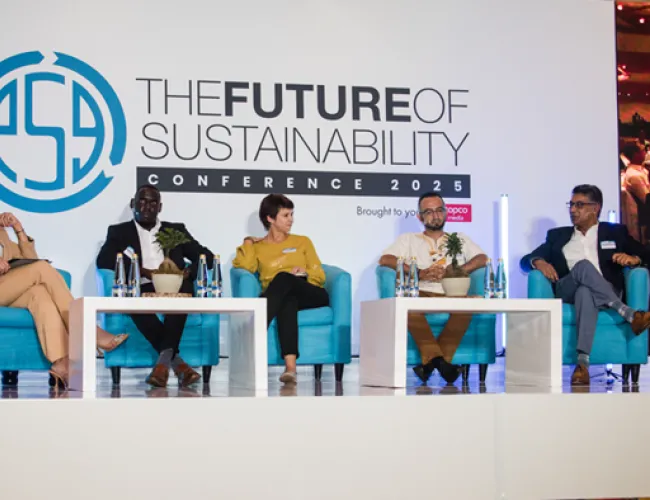
Advocating for a circular approach at Future of Sustainability Conference
Council for Scientific and Industrial Research (CSIR) senior researcher Dr Lorren Haywood shared impressive insights into the organisation’s innovative…
View More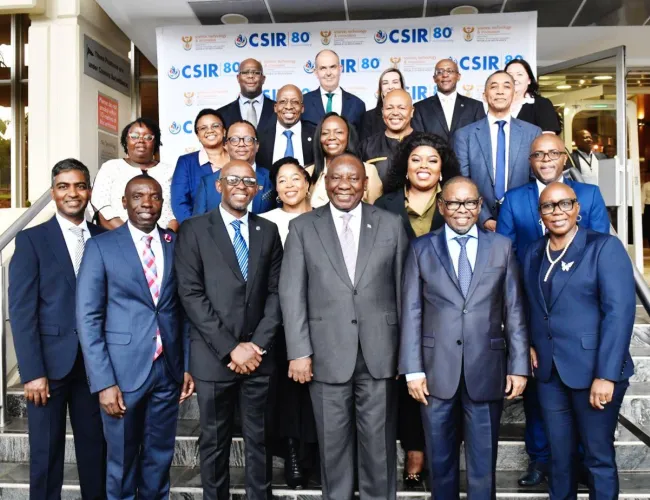
President Cyril Ramaphosa declares CSIR ‘a national treasure’
“Over many decades, the CSIR has been at the forefront of developing groundbreaking technologies and solutions that have profoundly shaped our country’s…
View More
CSIR collaborates with SMMEs to create low-cost sustainable RDP houses
On Friday 11 April, the Council for Scientific and Industrial Research (CSIR), an entity of the Department of Science, Technology and Innovation (DSTI), in…
View More